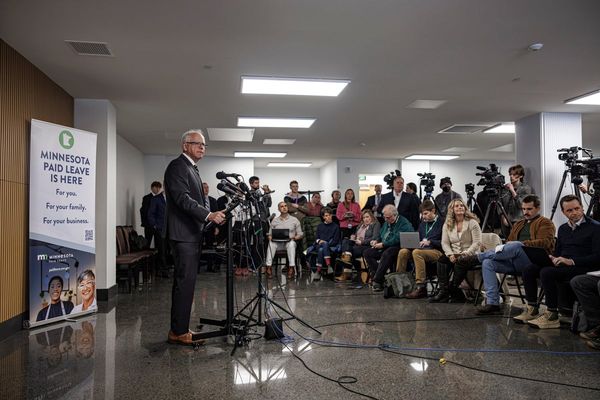A BID to temporarily block the banning of Palestine Action as a terrorist organisation has failed.
The Royal Courts of Justice in London heard the case on Friday morning, ahead of a potential legal challenge against the move.
Huda Ammori, the co-founder of Palestine Action, is seeking to bring a legal challenge against the Home Office over Home Secretary Yvette Cooper’s decision to proscribe the group under the Terrorism Act 2000.
The motion could become law as early as this weekend once it has been signed off by Cooper, which would make membership of, or support for, the direct action group a criminal offence punishable by up to 14 years in prison.
The move was announced after two Voyager aircraft were damaged at RAF Brize Norton in Oxfordshire on June 20, an incident claimed by Palestine Action, which police said caused around £7 million worth of damage.
At a hearing on Friday, Justice Chamberlain decided not to grant “interim relief” to Ammori, which would temporarily block the legislation from coming into effect at midnight on Saturday as currently planned.
The hearing began at 10.30am at the Royal Courts of Justice, with a further hearing to decide whether Ammori will be given the green light to challenge the Government’s decision expected to be held later in July.
Ammori’s legal team asked for the proscription order to be suspended until July 21. They also said that if the temporary block was not granted, a bid to appeal against that decision could be made on Friday evening.

The barrister said that his client had been “inspired” by a long history of direct action in the UK, “from the suffragettes, to anti-apartheid activists, to Iraq war activists”.
Quoting Ammori, the barrister continued that the group had “never encouraged harm to any person at all” and that its goal “is to put ourselves in the way of the military machine”.
He continued: “We ask you, in the first instance, to suspend until July 21 what we say is an ill-considered, discriminatory and authoritarian abuse of statutory power which is alien to the basic tradition of the common law and is contrary to the Human Rights Act.”
The barrister later said that the Home Office “has still not sufficiently articulated or evidenced a national security reason that proscription should be brought into effect now”.
Some 81 organisations are already proscribed under the Terrorism Act, including Hamas, Al-Qaida and National Action.
Ben Watson KC, for the Home Office, told the High Court that there was an “insuperable hurdle” in the bid to temporarily block the ban of Palestine Action.
The barrister also said that if a temporary block was granted, it would be a “serious disfigurement of the statutory regime”.
He said Palestine Action could challenge the Home Secretary’s decision at the Proscribed Organisations Appeal Commission (POAC), a specialist tribunal, rather than at the High Court.
Watson said: “At its heart, it is a challenge to the proscription of the organisation … POAC is the forum of first resort.”
He continued: “Even if the court does conclude that there is some residual scope for judicial review … then we respectfully submit that the court needs to look at the bespoke regime that Parliament has provided.”
In his written ruling, Mr Justice Chamberlain said: “The interim relief sought here would suspend the effect of an order which the Secretary of State considers is required in the public interest, and which has been affirmed by both Houses of Parliament.
“In those circumstances, other things being equal, there is a strong reason to allow the Secretary of State to make the order in what she considers to be a lawful manner.”
He continued: “The proscription order will undoubtedly have severe effects on the claimant and many others.
“The exercise of the power in respect of a group such as Palestine Action may also have wider consequences for the way the public understands the concept of ‘terrorism’ and for public confidence in the regime of the 2000 Act.
“It is not, however, the court’s function to comment on the wisdom of the use of the power in the case.”
Cooper announced plans to proscribe Palestine Action on June 23, stating that the vandalism of the two planes was “disgraceful” and that the group had a “long history of unacceptable criminal damage”.
MPs in the Commons voted 385 to 26, majority 359, in favour of proscribing the group on Wednesday, before the House of Lords backed the move without a vote on Thursday.
Four people – Amy Gardiner-Gibson, 29, Jony Cink, 24, Daniel Jeronymides-Norie, 36, and Lewis Chiaramello, 22 – have all been charged in connection with the incident.
They appeared at Westminster Magistrates’ Court on Thursday after being charged with conspiracy to enter a prohibited place knowingly for a purpose prejudicial to the safety or interests of the United Kingdom, and conspiracy to commit criminal damage, under the Criminal Law Act 1977.
They were remanded into custody and will appear at the Old Bailey on July 18.







